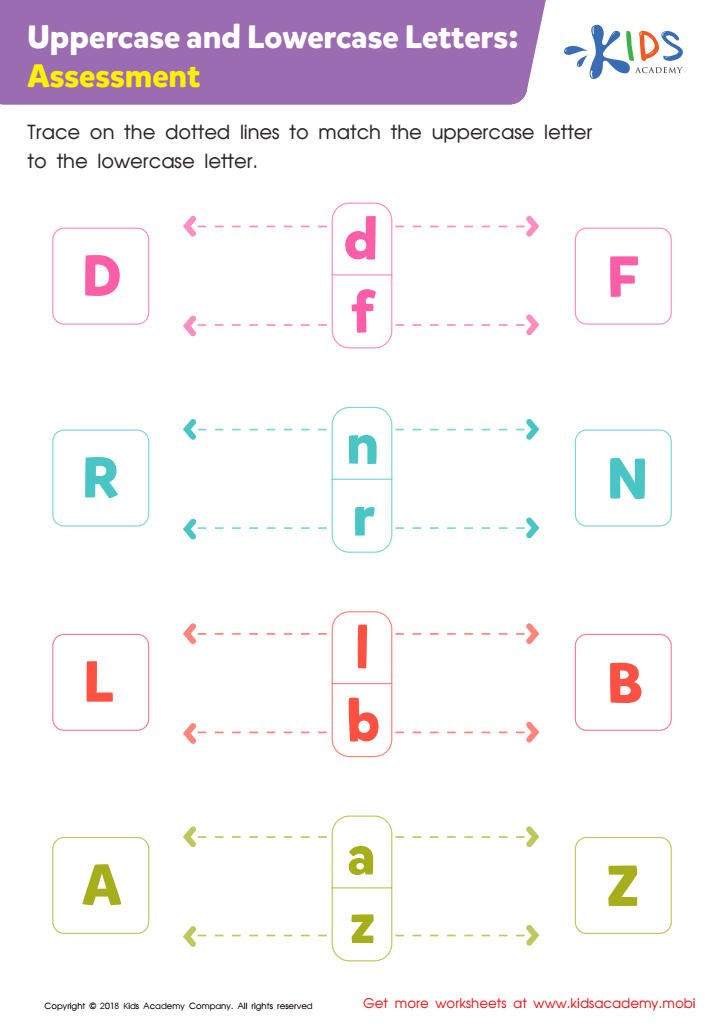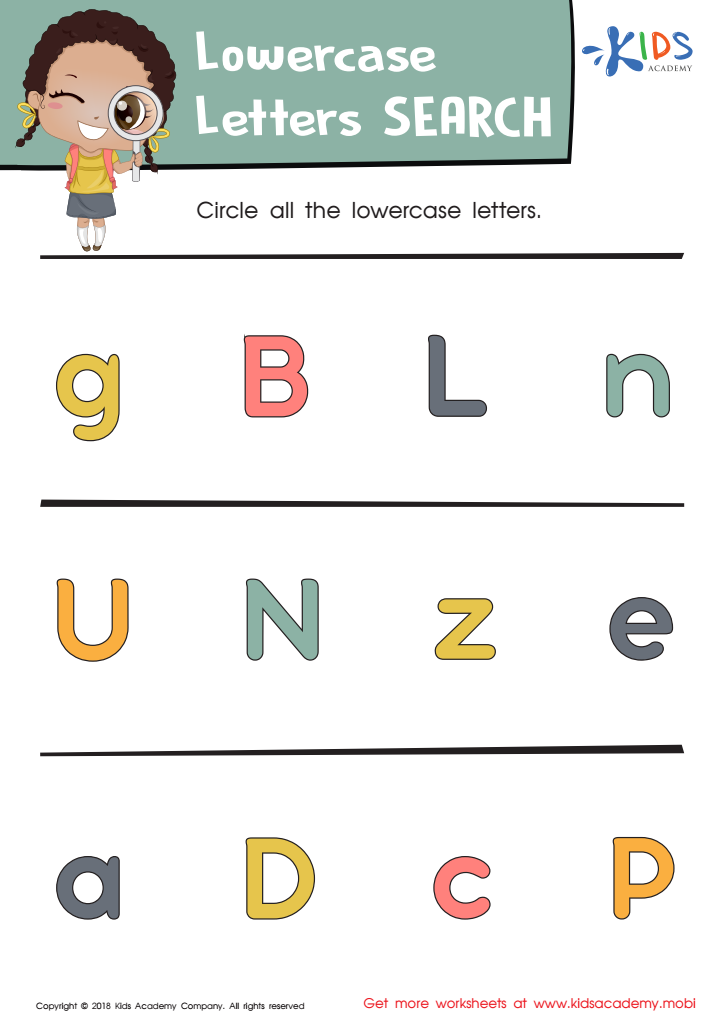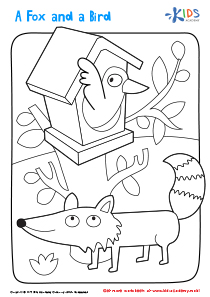Easy Lowercase/Small Letters worksheets activities for Ages 4-5
2 filtered results
-
From - To
Easy Lowercase/Small Letters Worksheets Activities
Dive into the world of letters with our Easy Lowercase/Small Letters Worksheets Activities! Designed to make learning fun and engaging, these worksheets are perfect for young learners starting their journey into the alphabet. With our carefully crafted activities, children will explore each letter through tracing, matching, and writing exercises, enhancing their understanding and handwriting skills in a stress-free environment. Ideal for preschoolers and kindergarteners, our Easy Lowercase/Small Letters Worksheets Activities are the go-to resource for parents and teachers aiming to cultivate a strong foundation in literacy. Get ready to watch your little ones master the alphabet with confidence and joy!


Uppercase and Lowercase Letters: Assessment Worksheet


Lowercase Letters Search: Assessment Worksheet
Easy Lowercase/Small Letters worksheets activities serve as an essential tool in the foundational stages of learning for young students. These activities are meticulously designed to introduce children to the alphabet in a manner that is both engaging and educational. Lowercase letters, which constitute a significant portion of written English, are often introduced after uppercase letters. The ease and simplicity of these worksheets make them incredibly useful for several reasons.
Firstly, Easy Lowercase/Small Letters worksheets activities are instrumental in improving fine motor skills. The act of tracing and writing lowercase letters requires precision and control, which helps in the development of hand-eye coordination and prepares children for more intricate writing tasks. These activities provide a structured way for children to practice and refine their writing abilities, which is crucial for their academic success.
Secondly, these activities aid in enhancing letter recognition. Recognizing lowercase letters is an essential skill since they are more prevalent in texts. Through repetitive practice and engaging worksheets, children become familiar with the shapes and sounds of each letter, fostering their reading skills. This foundational knowledge is pivotal in transitioning from letter recognition to word formation and eventually, fluent reading.
Moreover, Easy Lowercase/Small Letters worksheets activities cater to various learning styles. Whether a child is a visual, auditory, or kinesthetic learner, these worksheets can be tailored to meet their specific learning needs, making the learning process more effective and enjoyable. The simplicity of the worksheets ensures that children can work independently or with minimal guidance, fostering a sense of accomplishment and self-confidence in their abilities.
In conclusion, Easy Lowercase/Small Letters worksheets activities are a valuable resource in the educational journey of young learners. They not only support the development of essential literacy skills but also encourage a positive and proactive attitude towards learning. By integrating these activities into the learning regime, educators and parents can significantly enhance children's readiness for more complex literacy tasks, setting a solid foundation for their academic future.
 Assign to the classroom
Assign to the classroom











